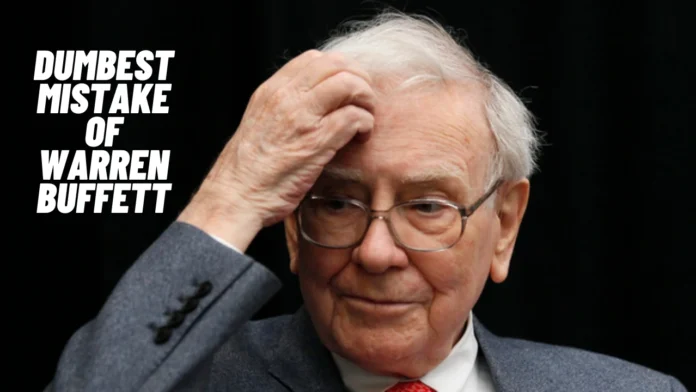Warren Buffett’s investment in Dexter Shoe Company is often cited as one of his biggest blunders, not just because of the immediate financial loss, but because of how he structured the deal and the opportunity cost involved.
The Dexter Shoe Deal (1993)
In 1993, Buffett’s Berkshire Hathaway acquired Dexter Shoe, a well-regarded U.S. shoe manufacturer at the time. The company was profitable, and Buffett was impressed by its strong brand and management. He believed Dexter had a competitive advantage in the shoe industry and expected it to be a long-term, stable business.
What Went Wrong?
- Industry Shift: Shortly after the acquisition, the U.S. shoe industry faced a massive shift. Foreign competition, primarily from low-cost manufacturers in Asia, started flooding the market. Dexter Shoe, which manufactured its products domestically, couldn’t compete on cost with these cheaper imports. This made Dexter’s business model obsolete, and its profits began to evaporate.
- Lack of Moat: Buffett frequently talks about the importance of a company having a “moat”—a durable competitive advantage that protects it from competitors. In retrospect, Dexter didn’t have a sufficient moat to defend against the global competitive pressures. While it had a strong brand, that wasn’t enough to fend off cost-efficient manufacturers from countries with much lower labor costs.
- Declining Business: Dexter’s decline happened rapidly. It wasn’t able to innovate or reduce costs enough to compete, and within a few years, its value had diminished to virtually nothing.
The Big Mistake: Paying in Stock
What makes this deal particularly painful for Buffett wasn’t just the decline of Dexter Shoe itself, but how he paid for it.
- Payment in Berkshire Hathaway Stock: Instead of paying cash for Dexter, Buffett used Berkshire Hathaway shares worth $433 million at the time. This decision was crucial because, over the long term, Berkshire Hathaway’s stock price skyrocketed, meaning the true cost of the acquisition ballooned as Berkshire’s value grew.
- Opportunity Cost: The Berkshire stock used in the deal would have appreciated enormously if Buffett had simply held onto it. Buffett has estimated that the mistake cost Berkshire shareholders many billions of dollars, not just the original $433 million.
For example, had Berkshire Hathaway stock grown, say, 30 times over (a reasonable estimate given its long-term growth), the $433 million worth of stock would have been worth over $12 billion today. Essentially, Buffett traded billions of dollars of value for a business that became worthless within a few years.
Buffett’s Own Admission
Buffett himself has called the Dexter deal a “huge mistake.” He acknowledges that not only did the business fail, but he compounded the error by using Berkshire stock, which is far more valuable than cash over time. In his annual letters to shareholders, he has referenced this mistake several times as a reminder to be cautious in valuing businesses and in how acquisitions are structured.
In his 2007 letter to shareholders, he wrote:
“To date, Dexter is the worst deal that I’ve made. But I’ll probably make others that will, in retrospect, look just as foolish. I just hope not many.”
Lessons Learned
- The Importance of a Durable Moat: Dexter Shoe didn’t have a sustainable competitive advantage that could withstand the pressures of globalization. This experience reinforced Buffett’s emphasis on investing in businesses with strong moats, like Coca-Cola, Apple, and insurance businesses like GEICO, which are much more protected from competition.
- Avoid Overpaying, Especially with Stock: After this mistake, Buffett became more cautious about using Berkshire stock for acquisitions. He recognized that the intrinsic value of Berkshire shares grows over time, and trading it for businesses that might not perform is a high-risk move. In hindsight, paying with cash or other financing methods would have been far less costly.
- Globalization’s Impact on Traditional Businesses: Dexter’s downfall highlights the broader trend of globalization and how industries based on high labor costs can quickly lose competitiveness when cheaper foreign options emerge. This has been a lesson for many businesses in manufacturing and retail.
Final Takeaway
The Dexter Shoe deal is a classic example of how even legendary investors like Warren Buffett can make costly mistakes. The real lesson is that investing is about minimizing errors, learning from them, and continuously refining the investment process. Despite this error, Buffett’s overall track record is a testament to his long-term success, showing that even the best can make mistakes, but what matters is how you respond and learn from them.

